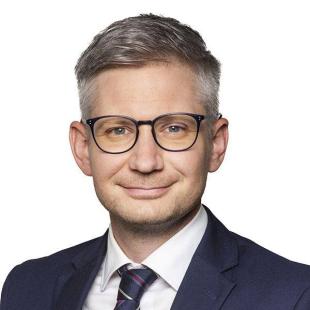
Key contacts
Around 30 million 1 people in Europe suffer from a rare disease (a disease affecting up to five in 10,000 people in the European Union) for whom orphan medicines are the only hope. Fifty percent of rare disease diagnoses are during childhood 2 which makes the diagnosis even more stressful for patients and their families.
There is no doubt that pharma sector acknowledges the unmet needs of patients with rare diseases and there has been huge progress in research and development of new treatments. A growing proportion of Europe’s pharmaceutical companies have become involved with rare disease research and the development of orphan medicines. The number of clinical researches into rare diseases increased by 88% between 2006 and 2016.‑ 3
Although an increasing number of orphan drugs is developed and placed on the EU market each year, there are huge discrepancies between individual Member States in access to those products, both from the perspective of the number of orphan products being actually reimbursed from the public healthcare systems (and thus being available to patients) and from the time perspective of how long it takes for an orphan product to become publicly reimbursed.
The EU is aware of the undesirable discrepancies in market access between the Member States and there are discussions that the EU Pharmaceutical Legislation should be revised. The treatment of rare diseases was one of the main topics of the recent Czech Presidency of the Council of the European Union. Twenty-two Member States supported the Call to Action in the area of rare diseases. The main points of the Action include improving early diagnosis, improving access to treatments, and integrating the European Reference Networks into national health systems for greater holistic care. 4
This Expert Guide outlines the legal regulations concerning the reimbursement of orphan drugs in seven jurisdictions in CEE: Bulgaria, the Czech Republic, Hungary, Poland, Romania, Slovakia and Ukraine. The guide confirms that there are vast discrepancies between individual countries in access to orphan drugs for patients. Except for the Czech Republic, currently no country has in place specific procedures for the reimbursement of orphan products. As a result, orphan products have to undergo a standard reimbursement procedure which, due to their nature (lack of sufficient information due to a small number of patients, bigger impact on state budget, etc.), do not always manage to meet all the criteria required for the reimbursement of “common” products.
The guide further confirms that there are discrepancies in the average timing of the reimbursement procedure. Although local laws may set out statutory time limits in which reimbursement procedures should be finished, in practice the procedures are often much lengthier and can take up to several years for an orphan product to become publicly reimbursed (and accessible to patients).
jurisdiction
Select a jurisdiction
Select up to two additional jurisdictions to compare with (optional)
Select a jurisdiction
Show jurisdictionSelect up to two additional jurisdictions to compare with (optional)



_840x420.jpg)

